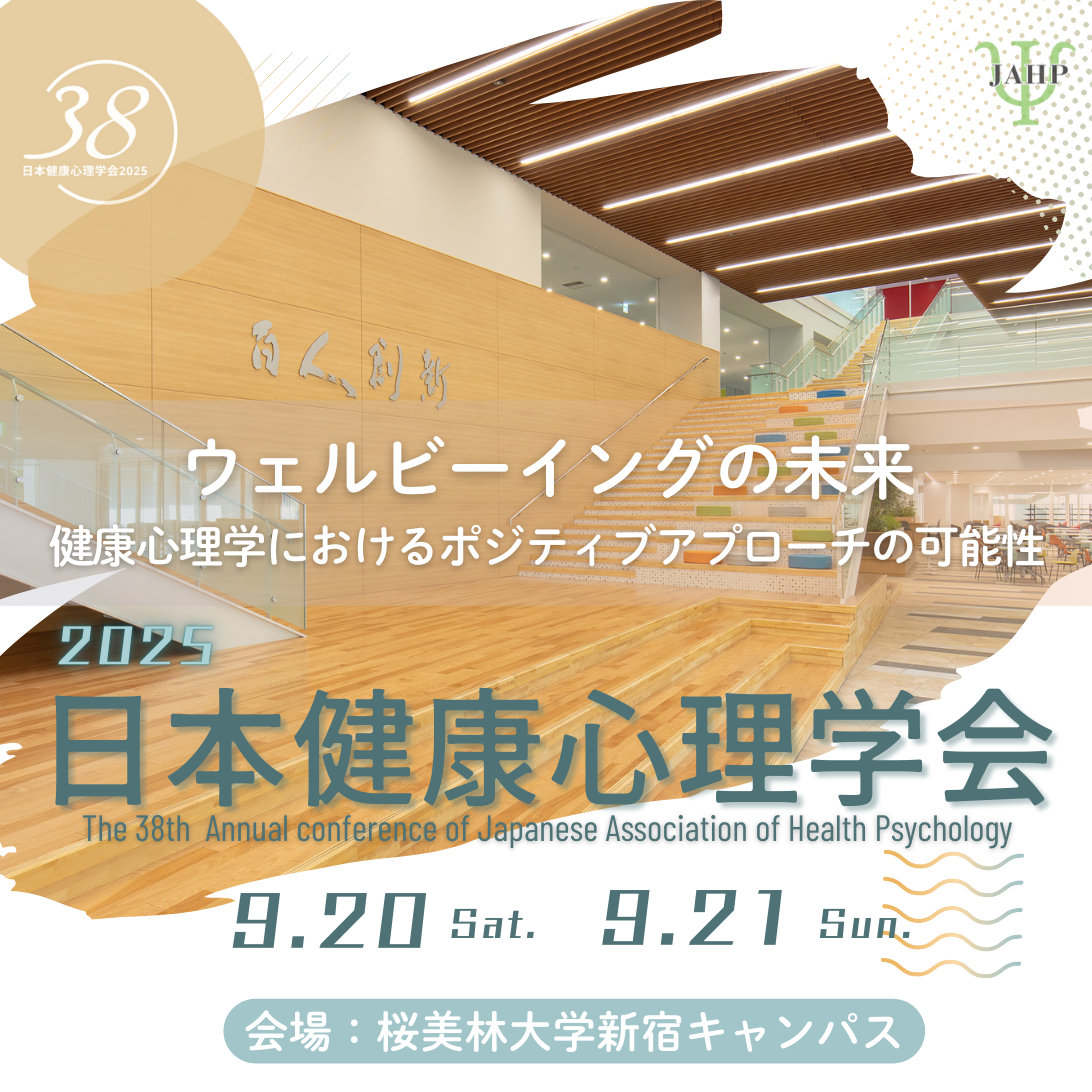Statements from the Association
The Japanese Association of Health Psychology's Declaration on Smoking Cessation
The Japanese Association of Health Psychology (hereafter referred to as "the Association") is committed to promoting research in health psychology, disseminating its findings, and fostering knowledge exchange and understanding among its members.
Recognizing the profound connection between smoking behavior and mental health and addiction, the Association places significant emphasis on research and initiatives related to smoking cessation. This includes exploring and promoting healthy stress management alternatives to smoking.
Given the overwhelming evidence demonstrating the detrimental effects of smoking, the Association firmly opposes any academic activities that condone or support smoking. Moreover, the Association is dedicated to taking concrete steps toward a tobacco-free world, as outlined below:
- A smoke-free lifestyle is paramount for achieving physical and mental well-being. The Association is dedicated to advancing behavioral science research and practices that support this objective.
- The Association strives to develop and disseminate effective strategies for creating a tobacco-free society, encompassing smoking prevention and cessation support programs.
- The Association will actively promote non-smoking practices during all academic conferences and workshops it organizes, with the aspiration that its members embrace a smoke-free lifestyle.
- The Association and its members will not accept funding or research support from the tobacco industry or any entities financially linked to it. Research receiving such support will be ineligible for presentation at the Association's events.
- The Association will actively collaborate with other healthcare organizations dedicated to achieving a tobacco-free world, collectively advocating with the government and relevant agencies for smoking-cessation initiatives.
August 10, 2017
Statement on the Integrated Resort (IR) Development Bill
The Integrated Resort (IR) Development Bill is currently under consideration for passage in the Diet. The most pressing concerns surrounding the enactment of this law are the potential increase in gambling addiction and the adverse effects that casino-centric resort facilities accessible to people of all ages could have on young people-our future generations.
While gambling is technically prohibited in Japan, various forms of gambling, such as pachinko, slot machines, and public gambling (horse racing, bicycle racing, motorcycle racing, boat racing, and lotteries), are permitted. A survey conducted 13 years ago by a Ministry of Health, Labour and Welfare research team estimated that 5.36 million people in Japan may have had a gambling addiction at that time.
Gambling addiction is similar to other addictions, like alcoholism, and can lead to a compulsive preoccupation with gambling, intense cravings, and loss of control. It can result in a range of psychological and social problems, including depression, suicidal thoughts, bankruptcy, and family breakdown. In extreme cases, the desperation for gambling money can even escalate to the commission of serious crimes, such as embezzlement, robbery, or murder. Despite its devastating consequences for individuals, families, and society as a whole, gambling addiction remains largely under-recognized, with limited treatment options available.
The Japanese Association of Health Psychology is committed to contributing to the maintenance and promotion of public health and expresses a deep concern about the passage of the Integrated Resort Development Bill, which would legalize casinos. The Association pledges to proactively address the prevention and support of gambling addiction, an issue that has long been neglected.
August 10, 2017


